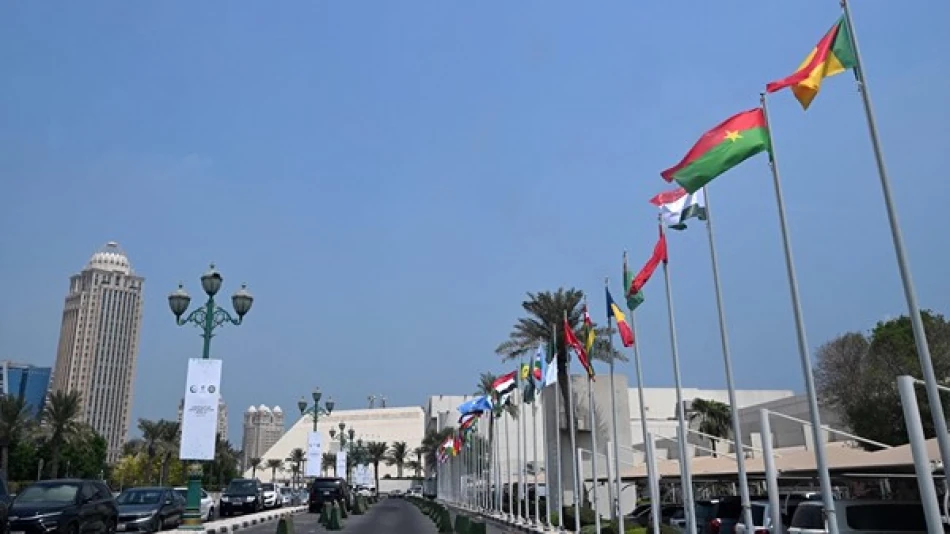
Arab-Islamic Emergency Summit in Doha: Foreign Ministers Convene for Critical Preparations
Arab-Islamic Summit Convenes Emergency Session Over Israeli Attack on Qatar
Foreign ministers from Arab League and Islamic Cooperation Organization member states gathered in Doha Sunday for preparatory talks ahead of an emergency Arab-Islamic summit addressing Israel's September 9 attack on Qatar. The high-level diplomatic response signals escalating regional tensions and Qatar's determination to leverage multilateral institutions in confronting what it characterizes as Israeli aggression on its territory.
Diplomatic Mobilization in Doha
The preparatory meeting, chaired by Qatari Prime Minister and Foreign Minister Sheikh Mohammed bin Abdulrahman bin Jassim Al Thani, brings together foreign ministers from across the Arab and Islamic world to draft a unified response statement. The formal emergency summit scheduled for Monday represents one of the most significant diplomatic gatherings in the Gulf state in recent years.
According to Qatar's official news agency, the ministerial session is focused on formulating a joint declaration condemning the alleged Israeli attack that occurred on September 9, though specific details about the nature and scope of the incident remain limited in public discourse.
Strategic Implications for Regional Dynamics
Qatar's Diplomatic Leverage
Qatar's ability to rapidly convene such a broad coalition reflects its significant diplomatic capital accumulated through years of mediating regional conflicts, including recent efforts in Gaza ceasefire negotiations and Taliban talks. The emirate's hosting of this emergency summit demonstrates how smaller Gulf states can punch above their weight diplomatically when facing security challenges.
Timing and Regional Context
The summit occurs against a backdrop of heightened tensions across the Middle East, with ongoing conflicts in Gaza and Lebanon straining regional stability. Qatar's decision to frame this as requiring emergency Arab-Islamic unity suggests the incident represents a significant escalation that transcends typical bilateral diplomatic disputes.
Multilateral Response Strategy
By engaging both the Arab League and Organization of Islamic Cooperation simultaneously, Qatar is employing a dual-track diplomatic approach that maximizes potential international support. This strategy mirrors successful precedents where Gulf states have used multilateral forums to build consensus against perceived external threats.
The emergency nature of the summit indicates Qatar views the September 9 incident as requiring immediate collective action rather than prolonged diplomatic consultations. This urgency suggests either the severity of the alleged attack or Qatar's assessment that swift multilateral condemnation is essential to deter future incidents.
Implications for Regional Security Architecture
The summit's outcome could establish important precedents for how Arab and Islamic states respond to attacks on member territories. A strong unified statement would reinforce collective security principles, while a weak response might encourage further unilateral actions by regional powers.
For international observers, the gathering represents a test of whether traditional Arab-Islamic solidarity mechanisms remain effective tools for smaller states seeking protection against larger regional powers. The level of participation and strength of any resulting declaration will signal whether these multilateral institutions retain meaningful influence in contemporary Middle Eastern security dynamics.
Most Viewed News

 Layla Al Mansoori
Layla Al Mansoori






